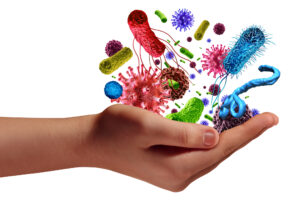
Did you know that the bacteria in your gut can seriously impact your chances of depression? A growing body of research suggests that changes in the gut microbiota – the trillions of bacteria and other microorganisms that live in our intestines – may play a role in mental health, including depression and anxiety. In this post, we’ll take a closer look at how gut bacteria can affect mood and discuss some ways to help keep your microbiota healthy.
Advertisement
Although depression is a common mental health disorder, it is still not fully understood. Treatment typically involves medication and psychotherapy, but there are still many cases where these approaches are not effective. However, there is increasing evidence that the microbiome-gut-brain axis may be a promising target for treatment.
The microbiome is generally understood to mean all the microorganisms that live in or on the human body, such as the intestinal flora. These microorganisms have been shown to play a role in mood and behavior, and it is thought that they may be able to influence the development of depression. The exact mechanisms are still unknown, but the microbiome-gut-brain axis is a promising area of research with the potential to improve our understanding and treatment of depression.
A recent study from the University of Basel and the University Psychiatric Clinics Basel (UPK) has shown that probiotics can support treatment with antidepressants. It has previously been suggested that patients with depression show an above-average prevalence of intestinal and digestive problems. So, researchers applied this knowledge to investigate the effects of probiotics on patients with depression.
All participants in the study were given a probiotic or a placebo for 31 days, in addition to antidepressants. It was found that although depressive symptoms decreased in all participants due to the antidepressants, there was a greater improvement in the participants who took probiotics along with the antidepressants.
Another intriguing effect of taking probiotics was also noted in this study. In patients with depression, certain regions of the brain for emotional processing behave differently than in individuals with good mental health. However, after taking the probiotics, the brain activity normalized in the probiotic group. The same changes were not observed in the placebo group.
Advertisement
“Although the microbiome-gut-brain axis has been the subject of research for a number of years, the exact mechanisms are yet to be fully clarified,” explains Anna-Chiara Schaub, one of the lead authors of the study. “With additional knowledge of the specific effect of certain bacteria, it may be possible to optimize the selection of bacteria and use the best mix to support treatment for depression.”
Keeping Mind and Body Healthy
With major strides in research that show the importance of gut health for mental health, people should be taking steps to repair their microbiome and give the body the vitamins and minerals it needs.
Anxiety Rescue is a great way to help the body and mind get all the essential ingredients it needs to stay strong and healthy. It is designed to help reduce anxiety and help support an overall healthy mood balance. Its unique formula that includes magnesium, l-theanine, ginseng, and more can target multiple aspects of stress and anxiety while supporting mood. It can act quickly and begin to work to improve mood and support anxiety symptoms as the weeks go on.
